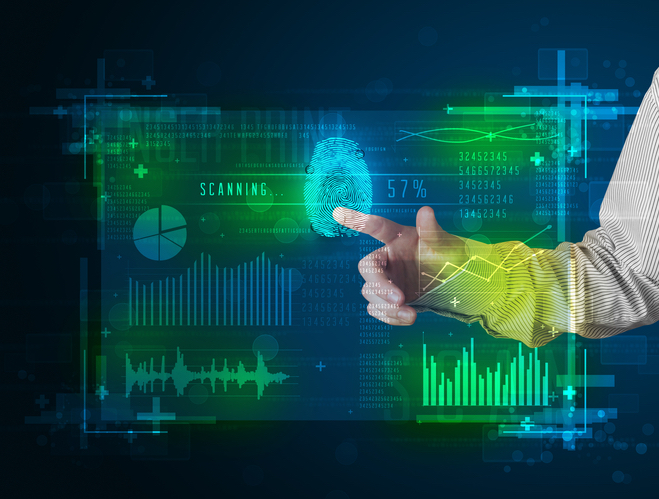Unlocking your smartphone with a fingerprint or via a facial recognition system - using biometrics on mobile devices has become an every day part of life, making it simpler and more secure. According to a recent study, 78% of those surveyed are already familiar with biometric authentication and 90% say they are ready to use biometric identification. But what really interests consumers about biometrics? A unique identifier, fraud prevention and ease of use top the list!
Because biometric authentication guarantees online users a smoother customer experience and enhanced security, B2C companies are starting to seize this opportunity.
Biometric recognition, a real accelerator of the customer journey on mobile devices
"Forgotten password", "Password reset"... We've all faced these irritating situations when authenticating an account or an online service. It's hard enough remembering a username, but finding your password is often the real nightmare.
As brands seek to meet the challenges of a smooth customer experience, many are looking to do away with passwords. 85% of brands say they have already taken steps to replace them with other authentication methods. Touch ID, Face ID, etc... Biometric authentication on mobile devices now seems to be the best alternative to passwords, and to speed up the customer journey!
Biometric authentication: the future of security?
In order to satisfy and reassure customers about the future of their personal data, brands must offer shoppers a secure experience from the moment they are authenticated. But today, passwords are increasingly complex, difficult to remember and, above all, easily hackable - 80% of data breaches involve compromised and weak passwords.
In light of new regulations, such as the GDPR or the European DSP2 directive, the interest in strong authentication is reappearing and new technological solutions or standards such as FIDO 2 are emerging to simplify the life of online shoppers, and above all to strengthen their security.
Among these technologies, biometrics has quickly emerged as the most relevant for identifying and authenticating people reliably and quickly, especially since the latest generations of mobile phones and computers are now equipped with the necessary tech (fingerprint key, facial recognition). The advantage of biometric authentication is that - in contrast to passwords that are transferred - visual information (fingerprints, facial recognition) is recorded and stored locally on a device.
To validate that you are who you say you are, you often have to "prove your innocence" twice. More and more organizations today are responding to the need to supplement the unique and known factor (the password) with a second factor, notably biometrics, instead of SMS, which is no longer considered a secure alternative. Biometrics is now considered the new standard in authentication! Massive data breaches and password theft, which have been in the news in recent years, should eventually become a distant memory.
CIAM, a key player in the emergence of biometrics
With changing regulations and new legal obligations, authentication is a key step in the success of customer experience and security. CIAM (Customer Identity and Access Management) solutions manage different authentication approaches, including biometrics, in a global and secure manner.
Biometrics is an interesting technology with its advantages and limitations, but as is often the case, everything depends on how it's implemented.
The compromise between security and ease, biometric authentication is no longer a simple trend, it is now an essential technology, whatever the use (retail, banking, travel etc...). Between now and 2022, this market will experience strong growth, and in 5 to 10 years, we will find ourselves in a world without passwords!
Contact ReachFive to find out more on how our CIAM solution can help you implement biometrics.






